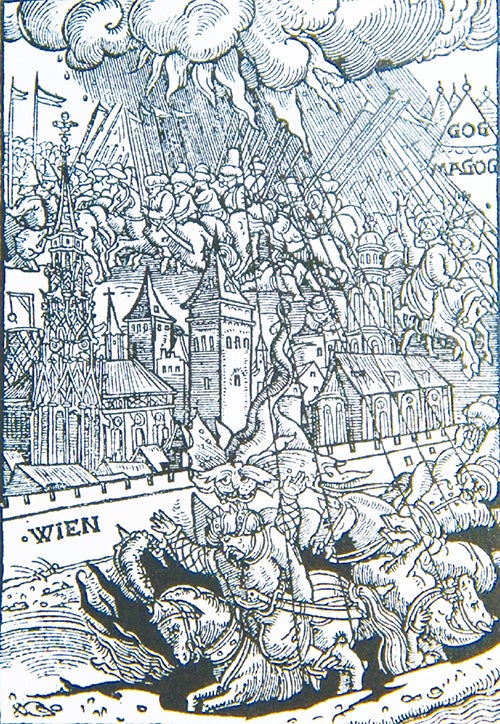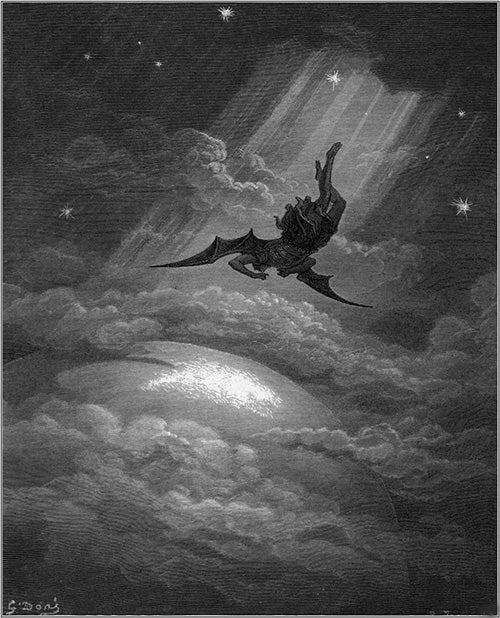October 31 marked the 500th anniversary of Martin Luther’s distribution of his 95 Theses. Their publication is commonly considered the founding event of the Protestant Reformation. He may or may not have actually nailed the Theses to a church door in Wittenberg, Germany, but in the end it really doesn’t matter. However he chose to make them public, they hastened a process that would revolutionize Western Christianity and permanently transform the politics and culture of Europe.
But the 95 Theses hastened those changes; they didn’t create them ex nihilo all on their own. Luther was inspired by men, ideas, and events that by 1517 had been in circulation for decades, even centuries. John Wycliffe had translated the Bible into Middle English in 1382, and the movement he led, Lollardy or Lollardism, promoted beliefs and practices that would later become core tenets within Protestantism: the use of vernacular languages, predestination, the unique authority of the Bible, the authority monarchs over the priesthood, and the rejection of purgatory, the papacy, clerical celibacy, pilgrimages, the selling of indulgences, and the intercession of saints. Wycliffe in turn inspired Jan Hus, the Czech dissident cleric who challenged the papacy’s position on the nature of the Church and the Eucharist. He was burned at the stake at the Council of Constance in 1415, almost exactly a century before Luther issued the 95 Theses.
On the other hand, tracing an intellectual line of descent from Wycliffe to Hus to Luther shouldn’t cause us to overlook the diverse and winding paths that Protestantism took. The Reformation was anything but straightforward. It is probably more accurate to speak of the Protestant Reformations, in the plural. The major figures—Luther, Calvin, Thomas Cranmer, to name just a few—each had distinct perspectives on what “reform” entailed, and the practical effect of their ideas depended upon the particular settings in which they acted. This led to some ironies, like Pope Leo X’s awarding Henry VIII with the title of Defender of the Faith in 1521 for the latter’s Defense of the Seven Sacraments. Henry wrote it as a refutation of Luther’s criticisms of the Church—when he was still a loyal member of the Roman Catholic Church. Just twelve years later, Pope Clement VII would excommunicate Henry after his marriage to Anne Boleyn.

Woodcut by Lucas Cranach the Elder
in Dat Nye Testament Martini Luthers, Wittenberch [Wittenberg], 1530.
This year’s anniversary of the 95 Theses was marked by commemorations throughout the Christian world. Not surprisingly, German tributes were particularly numerous, with religious and political dignitaries marking the occasion with services and ceremonies throughout the country. German Chancellor Angela Merkel, herself the daughter of a Lutheran minister, was on hand at religious services at All Saints’ Church in Wittenberg, on whose door Luther is said to have posted the 95 Theses.
We here at the Booth Family Center for Special Collections wanted to mark the occasion as well (albeit on a smaller scale). The Reformation was an important event both for the development of the printed book and in the history of art, two of our primary collection areas. It provided a massive stimulus to the printing industry, as the debates between rival visions grew more intense and called forth ever-increasing numbers of books, pamphlets, and prints.

Engraving by Gustave Doré
in John Milton’s El Paraíso Perdido [Paradise Lost], Barcelona, 1873.
Georgetown’s rare books collection is especially rich in Jesuit and Roman Catholic history, naturally, but it also has an impressive collection of Protestant works. They include the two works depicted here: John Milton’s Paradise Lost with stunning wood engravings by Gustave Doré, and an edition of Martin Luther’s translation of the Bible enriched by nearly three dozen woodcut prints by Lucas Cranach the Elder. We invite anyone interested in these or any of our other books relating to the Protestant Reformation (pro or con!) to come visit us and take a look.
--Kevin Delinger, Rare Books Intern
November 16, 2017
